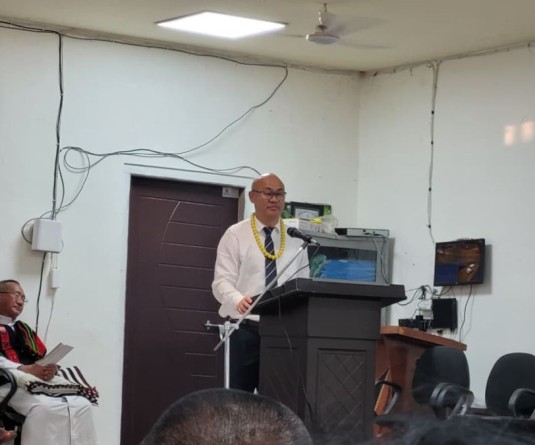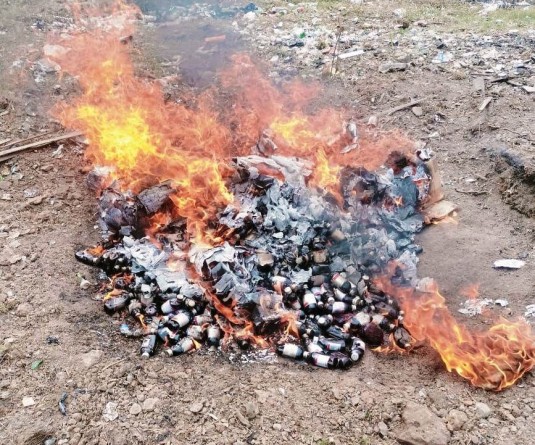
Dimapur, April 9 (DIPR): The Department of Health & Family Welfare organized a one-day health mela popularly known as “Parivar Kalyan Avam Swasthya Mela” at Niuland Sub-Division, under Dimapur District on March 8, 2011. The main objective of organizing such melas is for providing quality services, with converging and integrated delivery of services for all segments of population.
Local MLA Representing 4 Ghaspani 1 A/C, Y. Hewoto Awomi speaking as the chief guest thanked the government particularly the concerned Department and CMO Dimapur for organizing such health care programme and opined that it would immensely benefit the common people of the area. While saying this, Hewoto urged the people to compliment the opportunity of the services rendered. He also appealed to the people to come out openly without the fear of being ostracized or discriminated and share their health problem with the doctors who were professionally qualified and are specialist in their concern subjects to deal their problem. He added that a healthy and well being society is an asset for the state.
Chief Medical Officer Dimapur, Dr. Sukhato Sema in his key note address said that this health mela programme is to provide quality services for all segments of population and to complement the linkages between preventive, promotive, curative and rehabilitative health care as well as between the primary, secondary and tertiary health sectors.
The health care mela services involved National Programme for Control of Tuberculosis, Malaria, Blindness, Leprosy, Cancer and HIVAIDS, apart from services relating to maternal health, child health, immunization and family planning. Another important focus for this mela is on “Save the Girl Child”. Dr. Sukhato also said that the goal of this mela is to reduce infant mortality rate and maternal Mortality ratio by 50% from existing levels in the next seven years, universalise access to public health services such as women’s health, child health, water, sanitation, immunization and nutrition, Prevention and control of communicable and non- communicable diseases, including locally endemic diseases, access to integrated comprehensive primary health care, assuring population stabilization, gender and demographic balance and promotion of health lifestyles.
Local MLA Representing 4 Ghaspani 1 A/C, Y. Hewoto Awomi speaking as the chief guest thanked the government particularly the concerned Department and CMO Dimapur for organizing such health care programme and opined that it would immensely benefit the common people of the area. While saying this, Hewoto urged the people to compliment the opportunity of the services rendered. He also appealed to the people to come out openly without the fear of being ostracized or discriminated and share their health problem with the doctors who were professionally qualified and are specialist in their concern subjects to deal their problem. He added that a healthy and well being society is an asset for the state.
Chief Medical Officer Dimapur, Dr. Sukhato Sema in his key note address said that this health mela programme is to provide quality services for all segments of population and to complement the linkages between preventive, promotive, curative and rehabilitative health care as well as between the primary, secondary and tertiary health sectors.
The health care mela services involved National Programme for Control of Tuberculosis, Malaria, Blindness, Leprosy, Cancer and HIVAIDS, apart from services relating to maternal health, child health, immunization and family planning. Another important focus for this mela is on “Save the Girl Child”. Dr. Sukhato also said that the goal of this mela is to reduce infant mortality rate and maternal Mortality ratio by 50% from existing levels in the next seven years, universalise access to public health services such as women’s health, child health, water, sanitation, immunization and nutrition, Prevention and control of communicable and non- communicable diseases, including locally endemic diseases, access to integrated comprehensive primary health care, assuring population stabilization, gender and demographic balance and promotion of health lifestyles.






